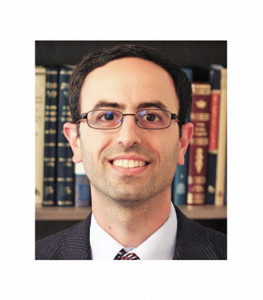
Reviewing: “Ageing in Medieval Jewish Culture” by Dr. Elisha Russ-Fishbane. Published by the Littman Library of Jewish Civilization, in association with Liverpool University Press. 2022. 416 pages. ISBN-13: 978-1800348516.
There is no getting around it—aging is a fact of life for each and every one of us. The recently released scholarly publication by Dr. Elisha Russ-Fishbane, “Ageing in Medieval Jewish Culture,” brings together a broad array of sources and perspectives regarding views and experiences of aging in that era, creating a seminal text for research while also providing the average reader with a wealth of interesting information.
Divided into chapters of specific topics, the book offers casual readers the opportunity to pick it up at any point and read what “speaks to them.” Covering sources from many genres, including philosophy and theology, ethics and law, biblical commentary, Hebrew poetry, medical literature, a host of marriage contracts, personal letters and family and communal records from the Cairo Genizah, the book provides a vivid picture of how aging has historically been understood and lived.

Russ-Fishbane had long been interested in the topic of cultural attitudes toward old age and had an extensive collection of articles about the topic. When he finished his previous book, on the movement of Jewish-Sufi pietism in medieval Egypt, his desire to come to terms with the existential experience of aging led him to his collection of articles. He explored a few other topics, but the gravitational pull of the subject matter was too strong to overcome. “The topic chose me, rather than me picking it,” he said.
Officially started in 2015, “Ageing in Medieval Jewish Culture” was written in segments as the author researched the topics. Increasing amounts of material led to additional writing with chapters and topics assembled as the sources came together. Even when he thought he was finished, more material would surface and was added to the text. Russ-Fishbane’s regrets that he “couldn’t just continue writing and adding more material.” Calling the book “a labor of love,” he realized that unless he identified a specific stop, the book would never be finished or read. Having the existing material published would be preferable to continuing infinite research. A second edition of the book would include the supplementary material found.
Divided into three parts, the book first identifies “Conception and Perception of Ageing,” continues with the relationships of “Ageing in Family and Community,” and concludes with the “Ideas and Ideals of Old Age.” The many sources from the Cairo Genizah are surprisingly applicable to the current time.
The book covers the definition of aging and being old; premature aging and associated hardships; the roles of grandparents in multigenerational homes; family and community networks of responsibility and care; and concludes with a section on the physicality and emotional aspects of aging. One of the core themes of medieval Jewish thought considers aging as the “Sabbath of life.” After six decades of work and labor, a person’s seventh decade is one of rest and holy pursuits analogous to the current-day practice of retirement from work.
In his research, Russ-Fishbane was surprised to find that sources from the same author would differ depending on the context of their writing. In his seminal work, “The Guide for the Perplexed,” Maimonides describes aging in glowing tones as growing in wisdom and having the time to spend on holier priorities—he mind strengthens as the body weakens. Yet in personal correspondence written in a similar time frame, Maimonides speaks of aging and describes his faltering body and general pain, being barely able to stand or write.
Russ-Fishbane hopes people will read his book with a sense of purpose. “Aging is a topic that makes many of us uncomfortable to confront and discuss openly. I hope that this book encourages more of us in the Jewish community to reflect together on the meaning of aging in our lives and those of our families and communities. To face the subject with curiosity and vulnerability takes courage. I hope this book plays a small role in broadening the conversation and opening our eyes to how earlier generations faced many of the same struggles and worked to cultivate a life of wisdom and dignity.”
The book documents that Andalusian poets who predated Nachmanides wrote of aging with the goal to awaken younger people to the “consciousness of mortality so as to cultivate wisdom while there is still time.” Russ-Fishbane added that “despite the critical differences dividing medieval Jewish culture from our own, it will not be hard for discerning readers to appreciate the many points of convergence linking their reality with ours.”
Contemporary Jewish culture maintains reverence for family and community elders, yet is not immune to the general youth-oriented culture of the United States. As children, parents, and/or grandparents, there is much to be learned about longevity and inherent dignity. Despite the somber subject matter, the book refers to actual responsa and situations that are particularly relevant. Given that many families today live far from their parents, the book can be helpful in understanding ways with which to provide them honor and dignity.
Russ-Fishbane is associate professor of Hebrew and Judaic Studies at New York University, and the author of “Judaism, Sufism, and the Pietists of Medieval Egypt” (2015), which was awarded the Salo Wittmayer Baron Book Prize for best first book in Jewish Studies by the American Academy for Jewish Research. “Ageing in Medieval Jewish Culture” can be found at Barnes & Noble, on Amazon.com and in other locations.









